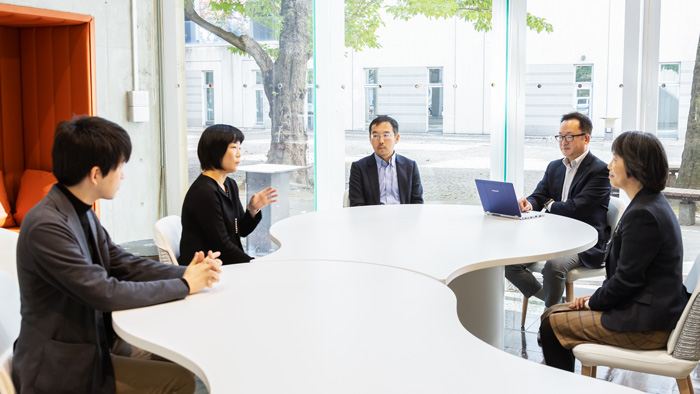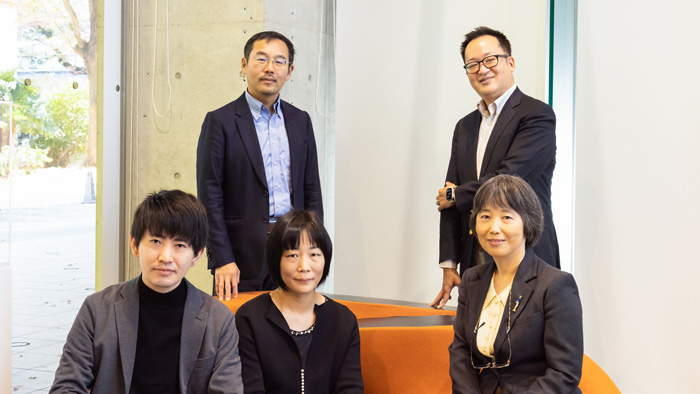- HOME
- About AIS
- Student Testimonials
- 30th anniversary round-table discussion
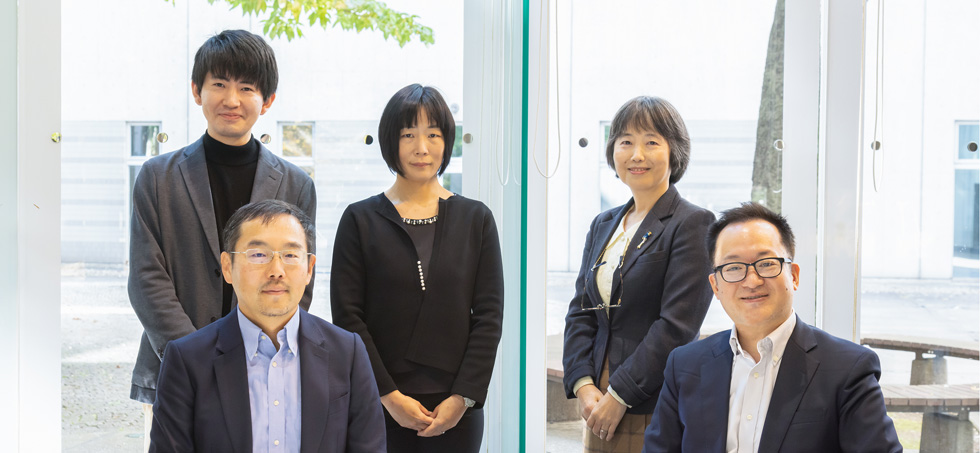
30th anniversary round-table discussion
Current students and teachers talk about things to come
Department of Advanced Interdisciplinary Studies
What is the Department of Advanced Interdisciplinary Studies like? What kinds of people study there? Three students who enrolled in the department in 2021 recently engaged in a candid discussion with teachers about the department to mark its 30th anniversary.
-
Facilitator
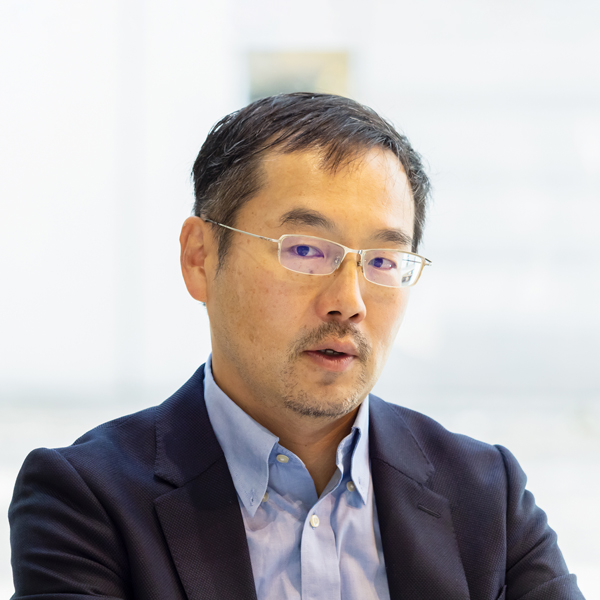
Takehisa Yairi
Department Head and
Professor
Artificial IntelligenceFinished a doctoral program at the University of Tokyo School of Engineering. Assumed his current position in 2019 after working as an assistant at the Research Center for Advanced Science and Technology, a professor at the School of Engineering, an associate professor, etc. -
Facilitator
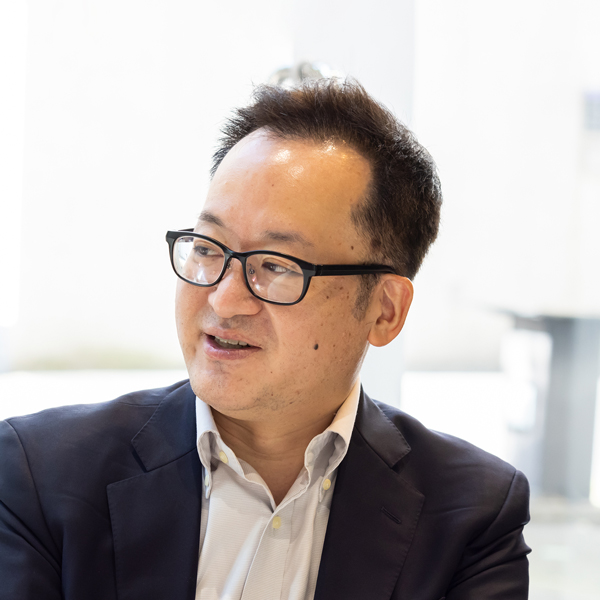
Masahiko Inami
Managing Committee member and
Professor
Information SomaticsFinished a doctoral program at the University of Tokyo School of Engineering. Assumed his current position in 2016 after working as a visiting scientist at CSAIL (the Computer Science & Artificial Intelligence Laboratory at the Massachusetts Institute of Technology), a professor at the Keio University Graduate School of Media Design, etc.
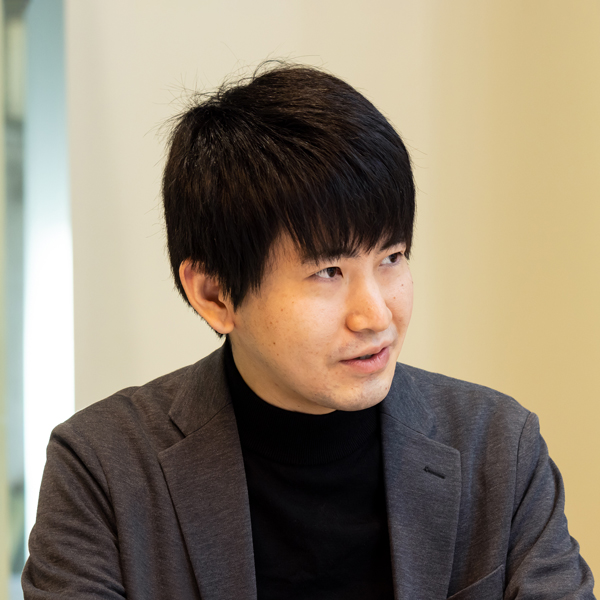
Keisuke Maeda
Second year student
Osawa LabEnrolled in the Department of Advanced Interdisciplinary Studies after graduating from Yamaguchi University's Joint Faculty of Veterinary Medicine in 2021.Chosen for the fiscal 2021 University of Tokyo School of Engineering's Leadership Development Program for Ph.D. Became a research fellow of the Japan Society for the Promotion of Science in 2022.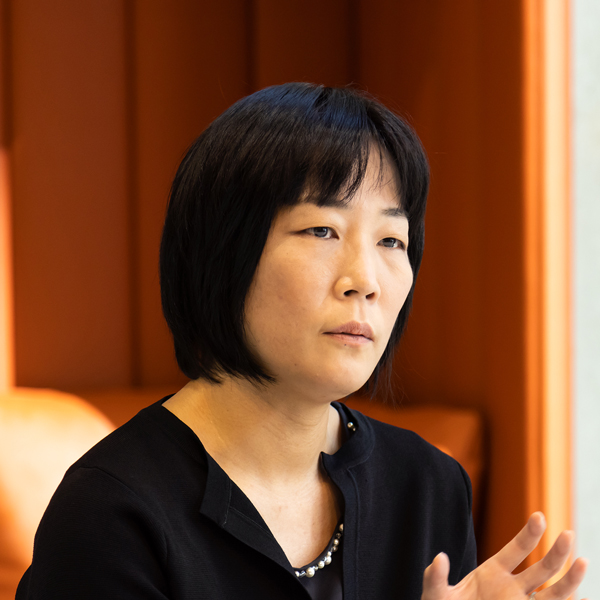
Yukiko Shimizu
Second year student
Kumagaya LabFinished a master's program at the Death and Life Studies Department of Sophia University's Graduate School of Applied Religious Studies in 2019 and then enrolled in the Department of Advanced Interdisciplinary Studies in 2021. Works as a pharmacist at a local general hospital.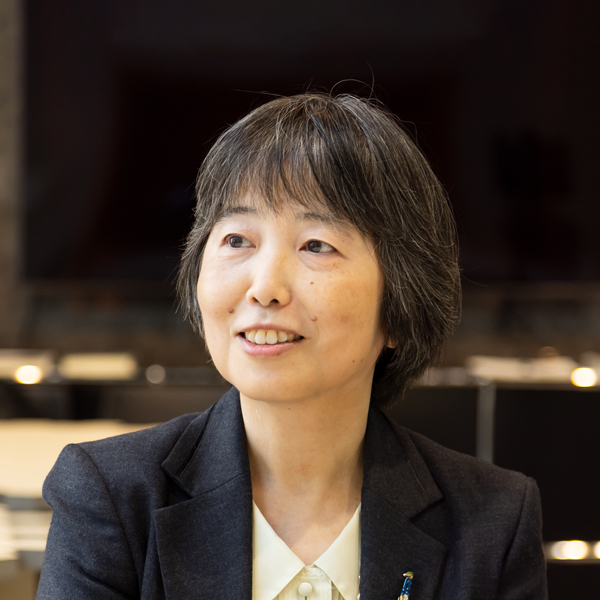
Junko Ami
Second year student
Sekimoto LabFinished a master's program at the University of Tokyo School of Engineering, worked for a manufacturer—where she was involved in telecommunications research and development, research-department organizational development, and human resources development—and then enrolled in the Department of Advanced Interdisciplinary Studies as a working adult in 2021.
A campus that was home to a goat
- Yairi:
- I completed my doctoral program at the Department of Aeronautics and Astronautics, but I was actually a member of Koichi Hori's laboratory—which is in the Artificial Intelligence field—from the time I started working on my master's degree. There are a lot of junior and senior colleagues from the Department of Advanced Interdisciplinary Studies at the lab, and around half of the students there studied at the department. I am therefore extremely honored to participate in today's talk like this.
- Inami:
- I am a graduate of the Department of Advanced Interdisciplinary Studies, and I studied there from 1996 to 1999. At the time, I worked at Tachi Lab—which is in the information physics field—where I focused on remotely controlling robots in the interest of researching telexistence. Right now, there's a robot in the RCAST Café on the 1st floor of building 14, and I often slept next to it. I have a lot of good memories of that place.
- Yairi:
- Back then, it felt like the laboratories were open 24 hours a day. Plenty of students stayed the night.
- Inami:
- There was even a goat with an artificial heart that was installed for research purposes. I remember that goat surprising me one night when I was walking around the campus. I thought it was a person!
- Yairi:
- Right, it used to graze on the campus grass.
- Inami:
- It all seems rather advanced to me now. Today, it’s a real privilege for me to be with all of you as a teacher. I feel like it's really important to hold crucial discussions like this, so we can talk about what we thought while we were students, what current students think, and of course what we should do to prepare for the future. I would be delighted if today's talk pans out that way.
- Ami:
- Ever since I completed my master's degree at the Department of Electrical Engineering, which is part of the University of Tokyo School of Engineering, 30 years ago, I have been working at a company. My main research topic is how to effectively use location information for disease-related crisis management. We are basically looking for ways to use cell-phone location information in order to identify people who might be infected and ensure that they receive suitable medical treatment in the interest of avoiding pandemics similar to COVID-19. I guess you could say this is an interdisciplinary topic that encompasses the medical and telecommunications fields.
- Shimizu:
- I finished my master's degree at the Death and Life Studies Department of Sophia University's Graduate School of Applied Religious Studies in 2019, and then I enrolled in the Department of Advanced Interdisciplinary Studies in 2021. I am continuing to work as a pharmacist at a local general hospital as I study here. I am in fact an adult child who has personally experienced an eating disorder, and my research topic is focused on learning about the experiences of women who have struggled with eating disorders, addictions, and social withdrawal and then finding ways to express such experiences in words.
- Maeda:
- I'm a member of Osawa Lab, which in the Integrative Nutriomics and Oncology field and is located on the 3rd floor of building 4, this building right here. Until 2021, I researched cancer malignancy causing mechanisms in human beings at Yamaguchi University's Joint Faculty of Veterinary Medicine. After I graduated, I came to the laboratory here to continue with my research, and my current research topic is the survival mechanisms of cancer cells in acidic-pH microenvironments.
Why did you choose this department?
- Inami:
- How did you find out about this department, and why did you pick it?
- Ami:
- I work at the research and development department of an electronics manufacturer, where I'm in charge of hiring and training researchers, but I was also a researcher to begin with, so I was helping a colleague with their research at the Kitami Institute of Technology as a volunteer. One day, they recommended that I consider going to graduate school and told me about Professor Yoshihide Sekimoto's laboratory at the University of Tokyo Center for Spatial Information Science. The center's research mainly concerns geographic information systems, or GIS, which struck me as closely related to my own research topic, and this school's system makes it easy for working adults like me to study here, so I decided to take on this new challenge.
- Yairi:
- In my own case as well, when I was a student, I had senior colleagues at the laboratory with plenty of life experience, and they taught me a lot about the nature of both society and research sites while I was in graduate school. At my current laboratory as well, working adult students and young students who chose to advance to their next stage of education talk about not only research but also company experiences and other things, which seems like a wonderful opportunity for everyone concerned.
- Shimizu:
- I actually encountered Associate Professor Kumagaya's research while I was working on my master's thesis. At Sophia University, teachers and students interact with each other to learn based on experiences related to theology as well as death and life studies, and finding true colleagues is one of the most valuable assets I gained there. I thought about advancing to their doctoral program, but I found myself drawn to Kumagaya Lab—where research is conducted based on the perspectives of the actual people who are struggling—and my supervisor recommended that I consider this department, so I decided to give it a try.
- Yairi:
- Right, RCAST certainly does emphasize the barrier-free paradigm.
- Inami:
- So what was it like after you actually enrolled?
- Shimizu:
- Well, I encounter a lot of sick people on a daily basis, but I feel like I didn't have many opportunities to interact with people with disabilities before. When I first enrolled, I was surprised to see people communicating with sign language, but it didn't take long for me to get used to seeing people with different disabilities interacting by using various technologies and skills, including the conversion of speech to text, sign language interpreting, and the conversion of text to speech.
- Inami:
- One thing that impressed me when I came to RCAST was the sight of a teacher using a motorized wheelchair on campus. I really think this is the kind of place we will need in the future, and I think society would change for the better if this kind of approach spreads throughout the world. I believe it's our job to make this happen. Our campus is itself a form of social-implementation research, including the installation of solar panels on its buildings.
- Yairi:
- What do you think, Mr. Maeda?
- Maeda:
- As an undergraduate, I analyzed cancer malignancy causing mechanisms at the protein level, but there were unfortunately no mechanisms that could truly be explained based on one protein molecule alone. Therefore, I found myself with an even stronger desire to engage in research based on the analysis of biological phenomena—which involve an organic, complex interplay of various factors, including metabolites, organelles, and the extracellular environment—at multiple levels of detail. While I was considering how to proceed with my education, I ended up encountering the Integrative Nutriomics and Oncology field. And then I chose this department because it accepts a wide range of entrance exams as well as students like myself who have a somewhat unique range of expertise.
- Inami:
- Up until I finished my master's degree, my research was focused on biosensors and the like. But could I really just start researching robots and information systems based on experience like that? Without the Department of Advanced Interdisciplinary Studies, I doubt I would have ever gone to the laboratory and tried. I really felt like this department would make such research possible given the diverse backgrounds of the people engaged in research here.
- Maeda:
- While I was doing research in veterinary school, I realized how important it is to communicate with collaborative research partners and specialists in other fields. I was also really interested in collaborating with clinicians, organic synthetic chemists, and data scientists as well as in conducting interdisciplinary research that incorporates the approaches of different fields, so this department seemed like a good fit.
Going beyond research fields
- Inami:
- The UTokyo-Research Alliance for Information and Life Sciences, an RCAST research project, seems to be attracting the attention of other departments as well.
- Maeda:
- The Research Alliance for Information and Life Sciences is a community consisting of laboratories from multiple fields, and most of its members are life science researchers. The Osawa Lab where I work is one of them. The barriers between participating laboratories are extremely low. For example, if we announce particular research results, another laboratory might suddenly present their own technology and offer to combine it with our results to develop new research. Basically, the environment makes it extremely easy to hold discussions and communicate. Some of the laboratories in the alliance are experimental like ours, with a focus on cells, others mainly handle biological information and statistical data, such as genomes, others develop machines and programs used for analysis, and others analyze the structure of proteins. I think this research system is great because it enables the multifaceted analysis of individual biological phenomena while fully utilizing cutting-edge technologies.
- Inami:
- It really is interesting that the barriers are so low in spite of the fact that the fields are so different.
Surprising things about online classes
- Yairi:
- I was actually the head of the department in fiscal 2020 as well. When the COVID-19 pandemic started, I discussed how to hold classes with the people in charge of educational research support, and I feel like we made an extremely smooth transition to online classes. Everyone enrolled in April of 2021, and—although the COVID-19 pandemic has been negative in many ways—I also think it has been positive in that it has enabled us to notice new things.
- Ami:
- I was especially impressed by the online class English in Advanced Science Technology, which is part of Leadership-Talent Growth Program II. Before COVID-19, I assume that the class involved the interaction of the teacher and students in the classroom, but this experience was accurately reproduced online!
During the lectures, we used Zoom and Google Drive to put together personal portfolios while engaging in individual simulated exercises covering each step involved in writing research papers in English, including titles, abstracts, text, figures, and works cited. In addition to writing, there was also time for self-introductions—which are necessary to participate in academic societies—reading news and articles related to science and technology by using an easy-to-understand speed and accent, and ultimately presenting the portfolios we made. There were more than 20 students, and every one of us had the opportunity to practice listening, speaking, reading, and writing. Overall, the class was extremely active and practical. I have been in charge of training at my company for a long time, and I was honestly shocked that such an effective English class could be provided online. - Yairi:
- I have never evaluated our department's classes from that perspective, so that's really interesting. But did you run into anything that caused you trouble or seemed unfortunate in terms of the COVID-19 pandemic?
- Ami:
- The COVID-19 pandemic made it hard to come to the campus as often, and—when I initially enrolled and was thinking about my lecture completion plan and research plan—I wanted to ask how other working adult students approach this, but I couldn't find anyone to talk to, which was a little confusing. Relationships between students in the department make it easy to talk about things like this, which is really nice.
- Yairi:
- We feel bad about that, too. The Komaba Research Campus has a really peaceful environment, so we want the students to be able to come and go more freely and experience all kinds of things.
- Ami:
- Scuola di RCAST was created by design teachers, right? I took a lecture called Advanced Art Design, and I heard about the kind of thinking that went into the design, so I was looking forward to seeing the chairs and desks.
- Yairi:
- There's nothing quite like experiencing the real thing, right? Was the teacher Hideki Yoshimoto (a project associate professor)?
- Ami:
- Yes. I really just took the lecture because it seemed interesting, but it ended up impressing me, so I requested instruction from Professor Yoshimoto for Leadership-Talent Growth Program I: Proposal (a class about devising a research plan) as well. Proposal provided a unique and valuable opportunity to receive instruction from a teacher who was not directly related to my research topic. Professor Yoshimoto is a design engineer, and I found his new perspectives and sensibilities to be highly stimulating, which also gave me the opportunity to reconsider my attitude in dealing with my own research as well as its significance.
Opportunities presented by the COVID-19 pandemic
- Yairi:
- How do you hold seminars and workshops at your laboratory, Professor Inami?
- Inami:
- Well, things with a fixed agenda are handled online, while experiments, discussions, and the like are done in person. Due to the COVID-19 pandemic, a new approach has emerged where prototypes are made in the metaverse, and then things that seem like they might work are physically created by using 3D printers. Naturally, there is a lot we can only learn after physically producing things. But I think the fact that we have reduced the conventional trial-and-error cost of making things early on has in fact accelerated our research. We lost a lot because of COVID-19, but, looking at it another way, COVID-19 is also a research topic. There are even teachers who are using the effects of the COVID-19 pandemic on society as the subject of their field work, which I think is amazing.
- Yairi:
- Right, some people look at the COVID-19 pandemic as a good opportunity for research.
- Inami:
- One teacher mentioned that the COVID-19 pandemic is the kind of event that only happens once in a hundred years, so it would be foolish not to use it as field work, and that gave me quite a boost. The COVID-19 pandemic has made it difficult for formerly successful people to keep succeeding, but I think the opposite sometimes happens as well. Have these changes resulted in any new research approaches in terms of tojisha-kenkyu?
- Shimizu:
- I think that one characteristic of tojisha-kenkyu is that people who have experienced similar hardships can go somewhere to gather, talk to each other, and notice things as they find ways to survive. The COVID-19 pandemic made it hard to hold face-to-face events, but—even though I was fortunate in that my own group kept going without taking a single break—events were held online at the same time. Before the pandemic, it was hard to participate from a distance, but—due to this new online support—more of us could spend time together, including people participating from overseas. I feel like this is an example of a success stemming directly from the COVID-19 pandemic.
- Yairi:
- We generally hold hybrid seminars, but some of our adult students have transferred and work overseas. Before COVID-19, such students would have taken time off from school and then returned after they came back to Japan, but now some of these people continue to take lectures online, participate in seminars, and conduct their research while they are overseas. The pandemic has imposed various limitations, but we can also look at the situation positively in some ways. What about you, Mr. Maeda? I know that your field is mainly focused on experiments, but do you ever do anything online?
- Maeda:
- At our weekly LSBM (Laboratories for Systems Biology and Medicine) floor meetings, life science researchers from both within and outside of RCAST announce their research. These meetings are currently held online, and they are attended by around 40 to 50 students and teachers. To me, one good thing about these meetings being online is that I can listen to the announcements of famous teachers and easily ask them questions from the comfort of my own desk.
Right here in building 4 alone, RCAST is home to a number of leading life-science thinkers who have published extremely influential research results, including Tatsuhiko Kodama (Professor Emeritus at the University of Tokyo), Hiroyuki Aburatani (Senior Research Fellow), and Hiroshi Nishimasu (Professor). It's really something to actually see teachers who I once knew only as names in research papers and textbooks and realize that they actually exist. And they even give me goodies now and then! It's really an amazing environment. Before COVID-19, there were apparently Happy Hour events held on campus to facilitate communication. It makes me a little sad that the pandemic has made it so hard to serve food and drinks.
Things that impressed you after enrolling
- Ami:
- Has anything impressed you since you enrolled, Ms. Shimizu? I'd like to hear from you as well, Mr. Maeda.
- Shimizu:
- When I enrolled, there were various admission restrictions in place, but those restrictions have gradually been lifted. There has been progress in terms of hybrid courses that are held both online and in person, and I'm actively participating in lectures on the Hongo Campus as well. I feel like I have had more freedom since starting my second year, including attending omnibus lectures and then taking seminars given by related teachers as a result.
- Inami:
- In the past, it was necessary to go to Hongo, and—now that online classes are available—Hongo students sometimes take RCAST lectures.
- Yairi:
- I feel like a lot of students are taking advantage of the fact that it has gotten easier to move around.
- Maeda:
- Personally, I have encountered people with more diversity in terms of their fields and backgrounds than I expected before I enrolled. It has been really refreshing to learn what the same old things look like when viewed from someone else's perspective. Perhaps the most important thing is that I have reaffirmed that—even when it comes to cancer research—there are a lot of different approaches out there. When I was in veterinary school, my laboratory was small, and—due to the nature of undergraduate work—there weren't a lot of opportunities for large-scale research encompassing many research groups. But now I have the opportunity to collaborate with research institutes and companies in Japan and abroad, and this has provided my first experience with cross-field research characterized by a true sense of organic fluidity.
- Yairi:
- Yes, we have cultivated an atmosphere of individually diverse people who respect each other and enjoy each other's differences.
- Inami:
- That said, simply mixing up people with different values and backgrounds is not enough to achieve diverse research. In the end, you also need both curiosity and tolerance. That's something I have learned from teachers in the barrier-free field.
Future expectations
- Inami:
- What do all of you hope to accomplish in the future? Also tell us if you have any expectations regarding the next 30 years for the Department of Advanced Interdisciplinary Studies.
- Ami:
- My company life has lasted many years, leading to my field becoming a bit too fixed, and once again attending a university has helped me to expand my horizons in terms of both interpersonal relationships and the field in which I specialize. I would like to use this as an opportunity to again enjoy my research and my life while engaging in a wide variety of activities. Given that we have such a diverse range of curious researchers here, I think it would be nice to develop our horizontal relationships a bit more and enjoy something together.
- Inami:
- In the interest of building horizontal relationships, we have actually started a Facebook group. We are trying to prepare a system that can enable not only members of our department but also individuals learning on the Komaba Research Campus to interact. We would be delighted if you could participate.
- Shimizu:
- Even though I wanted to get involved in social activities, I had trouble finding the courage, and I was always extremely cautious as I pursued my research. But I have been inspired by the freedom given to me by the Department of Advanced Interdisciplinary Studies, and I am gradually trying to change. Little by little, I hope to start making something of my ideas. Because of that, I think horizontal relationships are really important, too. I would be really happy if the department could be the kind of place where I could talk to someone if I run into some kind of wall.
- Maeda:
- As a result of my experiences here, I have developed an interest in fields that never seemed to have anything to do with me before. Similar to the way biodiversity conservation and establishing a sustainable society have become closely involved in economic activities in recent years, connections sometimes arise between fields that seem separate at a glance. I therefore hope to become the kind of person who can demonstrate my abilities without clinging to any particular field. If you are thinking about advancing to the next stage of your education, I think you should take that step without worrying too much about your personal background.
- Yairi:
- The name of our department includes the word “advanced,” and—based on what I have heard from all of you—I really feel like we have continuously achieved advanced interdisciplinary studies for the last 30 years and have constantly changed as we maintain this level of sophistication. I fully expect us to remain every bit as advanced as we head into the future.
- * All information in this article is as of November 2022.


